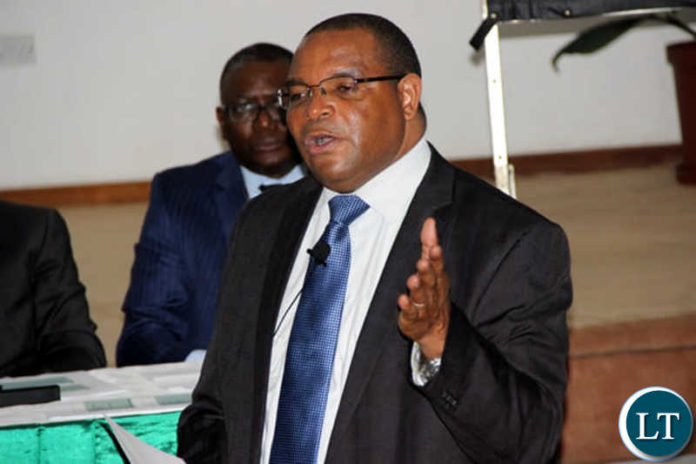Bank of Zambia Governor Calls for Deeper Financial Inclusion
Bank of Zambia Governor Dr Denny Kalyalya has highlighted the importance of expanding financial inclusion, saying that while progress has been made, more work is required to ensure the banking sector serves the majority of citizens. Speaking at the 2025 Banking and Financial Services Conference in Livingstone, Dr Kalyalya noted that ninety percent of deposit accounts in Zambia hold balances below K50,000, showing that large deposits are concentrated in a small segment of account holders.
Delivering remarks through his deputy, Francis Chipimo, the Governor said the figures reveal a growing but uneven banking landscape. He explained that while financial inclusion has improved significantly in recent years, the distribution of deposits demonstrates that the benefits are still not spread evenly across society. He said Zambia’s financial system must continue to evolve in a way that supports small and medium enterprises and ordinary households, not only large institutions.
Dr Kalyalya outlined several reforms that the central bank is implementing to strengthen the financial sector. Among them is the introduction of a deposit insurance scheme by the end of this year, which will provide structured protection for depositors in case of bank failures. He said the measure would enhance public confidence in the banking sector and encourage more people to use formal financial services.
He also pointed to signs of stability in the financial system, saying that non-performing loans remain below benchmark thresholds, an indication of improved asset quality. He added that reliance on government securities had reduced from 23 percent in 2020 to 20 percent in 2024, reflecting greater confidence in the private sector and improved fiscal management.
The Governor said Zambia’s fiscal position has strengthened significantly over the last four years. He noted that fiscal deficits, which were estimated at 40 percent of gross domestic product in 2020, have been cut to 3.4 percent, largely due to debt restructuring and improved budget discipline. He emphasised that this progress should be consolidated with policies that encourage inclusive growth.
Dr Kalyalya stressed the central role of micro, small, and medium-sized enterprises in economic growth. He said these businesses are the backbone of job creation and innovation, and the banking sector must make services more affordable and accessible for them. He explained that the Bank of Zambia is working with commercial banks to reduce service costs through technology and digital platforms, which he described as key tools for expanding inclusion.
He also addressed the need to integrate climate change and social equity considerations into financial sector planning. He said finance leaders must embrace sustainable strategies that respond to new risks and global challenges, ensuring that the banking system supports not only profit but also resilience and fairness.
The conference, hosted by the Zambia Institute of Banking and Financial Services, brought together industry leaders and policymakers. ZIBFS president Lishala Situmbeko echoed the Governor’s message, calling on the financial community to play an active role in building systems that address inequality and help the country transition towards a sustainable economy.
Dr Kalyalya said the focus moving forward would be to balance stability with growth. While Zambia’s banking system is more stable than it was five years ago, the Governor warned that stability alone is not enough if most citizens remain outside the formal financial system. He said the central bank would continue to strengthen regulation while also promoting innovation that reduces costs and expands access.
He added that financial literacy is equally important, as citizens must be able to understand and take advantage of the services available to them. Expanding knowledge about savings, loans, and insurance, he said, would help Zambians make informed decisions and reduce vulnerability to financial shocks.
The Governor closed his remarks by urging collaboration across all stakeholders, including banks, regulators, government ministries, and civil society, to achieve a financial sector that serves the entire population. He said the goal was to build a system where citizens at every income level have access to safe, affordable, and effective financial services.


